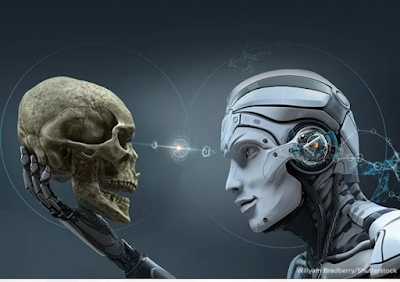The Future is Here: 14 Million Jobs Will be Replaced by AI
Artificial intelligence (AI) : has become one of the most significant topics of discussion in recent years, as it has the potential to significantly alter the way we live and work. As mentioned earlier, AI has the ability to replace millions of jobs, but it also has the potential to create new ones and increase productivity. In this article, we will explore the impact of AI on various industries and the potential benefits and risks associated with its development.
One of the industries that have seen significant growth due to the development of AI is healthcare. AI has the potential to transform the healthcare industry by making diagnosis and treatment more efficient and accurate. AI algorithms can analyze vast amounts of medical data, including patient records, test results, and scientific research, to provide doctors with personalized treatment options for patients. This technology can also help medical professionals predict and prevent disease outbreaks by analyzing public health data.
Another industry that has been significantly impacted by AI is the financial sector. AI-powered algorithms are increasingly being used for fraud detection, investment analysis, and trading. These algorithms can analyze large volumes of data and provide financial institutions with insights that can help them make informed decisions.
In addition to healthcare and finance, AI has the potential to transform the transportation industry. Self-driving cars are becoming more common, and some companies are already using autonomous vehicles to deliver goods. This technology has the potential to improve road safety, reduce traffic congestion, and increase efficiency in the transportation of goods.
While AI has the potential to bring significant benefits to various industries, it also poses significant risks. One of the most significant risks is the potential loss of jobs. As mentioned earlier, AI has the ability to replace many jobs that are currently done by humans. This could lead to significant unemployment and economic disruption, particularly in industries that rely heavily on manual labor.
Another potential risk associated with AI is the possibility of bias in decision-making. AI algorithms are only as unbiased as the data they are trained on, and if the data contains biases, the algorithms will also be biased. This could lead to unfair or discriminatory decisions, particularly in areas such as hiring, lending, and criminal justice.
To mitigate the risks associated with AI, it is essential to develop ethical guidelines and regulations that ensure the technology is developed and used in a responsible and ethical manner. Governments and organizations must work together to ensure that the development of AI benefits society as a whole.
In conclusion, AI has the potential to transform various industries and bring significant benefits, but it also poses significant risks. The impact of AI on different industries will vary, and it is essential to consider the potential benefits and risks associated with its development. It is crucial to develop ethical guidelines and regulations that ensure the technology is developed and used in a responsible and ethical manner to maximize its benefits and minimize its risks



.jpeg)


0 Comments